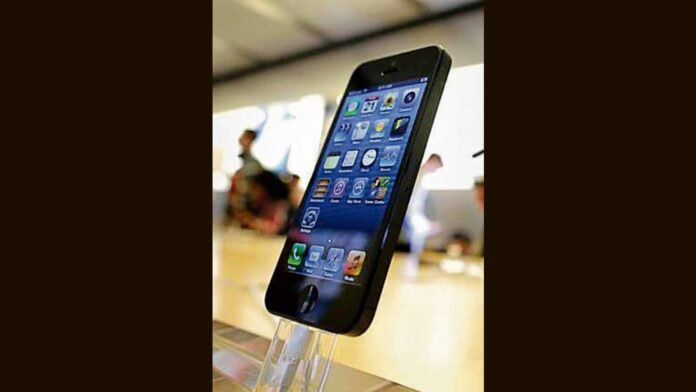Welcome To Latest IND >> Fastest World News
To brighten or clean up, as the Oxford English Dictionary defines “refurbish”, is an approach finding increasing relevance for tech purchases. There are two overarching impressions to be drawn – value and aspiration. Smartphones continue to dominate, but more tech products are making a case too.

Refurbished tech, led by smartphones, is increasingly gaining traction as gadgets become expensive. For instance, average selling price of smartphones grew annually at 38% between 2020 and 2023, according to research firm International Data Corporation (IDC). “This in turn has elongated average smartphone replacement cycle in India from 24 months to almost 36 months currently,” points out Navkendar Singh, associate vice president with IDC India.
“The refurbished technology market in India is witnessing an unprecedented boom,” says Mandeep Manocha, co-founder and CEO of Cashify, a platform which sells refurbished smartphones, tablets, laptops, smartwatches and gaming consoles. They claim a 444% surge in revenue for 2023, which Manocha believes is fueled by consumer demand for cost-effective, high-quality devices.
Research firm Redseer estimates India’s refurbished electronics goods market will be worth $11 billion by 2026, up from around $400 million in 2021.
Cashify, ControlZ and Grest are three of India’s biggest refurbished tech marketplaces. E-commerce platforms Amazon and Flipkart are sharpening focus on refurbished tech as a category, while brands including Asus and HP use this as a springboard to widen product portfolio.
What are refurbished gadgets? These are essentially pre-owned pieces of tech, but unlike typical “used” products, there are a series of checks, necessary fixes and restoration that’s done.
“Technicians meticulously examine and fix, substituting any defective components and rebooting the software. The objective is to guarantee a device adheres to excellent quality standards, rendering it nearly identical to a brand-new item,” Yug Bhatia, founder and CEO of refurbishing platform ControlZ, explains to HT.
It is less likely that a refurbished gadget will have a non-working component, compared with just any used product. Often, refurbished devices command better price tags, because they are not only technically on a better footing, but also find warranty cover—usually between three months and a year.
That said, a buyer must trust a seller’s promise of multi-point checks for repairs, because it is impossible to verify for new or replaced parts, aside from cosmetic corrections. A lot then depends on operating systems such as Android and iOS to warn users—for example, if a swapped battery or display on an iPhone is not an original component, the phone generates a warning that cannot be ignored.
Flipkart has unlocked Reset for Business app for sellers of refurbished products, to assist their customers. The platform’s refurbished vertical includes a 74-point quality check for every product, warranty and service support.
Amazon too has a Renewed section that is well stocked in terms of variety.
Smartphones continue to be the dominant category, but other devices such as computing devices, tablets and wearables are increasingly finding relevance.
“Apple products, including refurbished iPhones, MacBooks, iPads, Apple Watches and AirPods, form the core of Grest’s offerings. For many customers, it is an affordable way to enter or upgrade within Apple’s ecosystem,” points out Nitin Goyal, co-founder and chief operating officer of Grest.
A new Apple iPhone 15 Plus with 256GB storage is priced at ₹89,900 whereas Grest’s refurbished options cost around ₹56,000 onwards. For buyers, that translates into a significantly lower monetary outlay.
“Consumers are drawn to refurbished items because they are significantly cheaper, often 40-60% less than new products, while offering good quality and performance,” points out ControlZ’s Bhatia.
It is no surprise that tech companies are noticing this transition, and speeding efforts to position refurbished products in parallel with regular portfolio of new tech that’s on sale. Computing devices get a renewed push.
Asus is adding to its physical retail presence, with stores in Chennai, Nagpur, Delhi, Mumbai, Kolkata and Hyderabad, to boost the refurbished PC category. Or “pre-loved PCs”, as Arnold Su, vice president of the gaming and consumer segment at Asus India, calls them.
HP spent most of last year strengthening its refurbished product line with affordable laptops. This year, the company has expanded focus to offer refurbished computing devices and peripherals such as printers and video conferencing solutions to businesses.
“Each HP Certified Refurbished device undergoes rigorous refurbishment and inspection processes, utilizes approved HP parts, and comes backed by HP Support for added peace of mind,” the company says in a statement.
For HP Certified Refurbished Hardware, part of the pitch includes reminding businesses about their environmental footprint promises. In an illustration, HP claims a refurbished Elitebook 840 laptop has a 64% lower carbon footprint calculated over a product life span of four years, than purchasing a new laptop.
Latest IND
